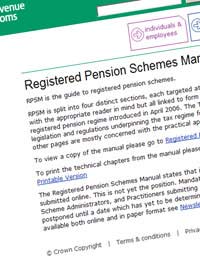Opting Out of State Earning Related Pensions

The State Earnings-Related Pension Scheme or SERPS, was a pension scheme which ran until April 2002. The purpose of SERPS was to supplement the basic state pension with a second scheme, directly related to an individual’s earnings. At maturity, the pension offered 25% of the pension-holder’s salary. Today, SERPS has been replaced by the State Second Pension, or S2P, which aims to increase the benefits available to those on lower incomes.
Today, it is also possible to choose not to make contributions to the State Second Pension, and instead to put this money towards a private pension agreement. This process is known as ‘opting out’ or ‘contracting out’, and is somewhat contentious amongst financial advisors.
Change-Over
Much of the confusion over whether or not opting out is a wise idea has originated as a result of the change-over from SERPS to S2P. Before the addition of extra benefits for lower-paid workers, many people chose to opt out as it was felt that the pension scheme offered by the state was not providing them with the best possible deal. When S2P was established, it was assumed that all those who had previously chosen to opt out would continue to do so. However, as a result of the new provisions in S2P, there is a developing consensus that those who previously contracted out their pensions (particularly those on lower wages) should reconsider.When an individual chooses to opt out of S2P they are given a ‘rebate’, meaning that their required National Insurance Contributions (NICs) will be reduced. The percentage by which they will be reduced depends on the individual’s age: currently, an 18-year-old would be entitled to a 4.3% reduction, while the highest possible reduction of 10.5% is available only to those aged 63 or over. While this may seem like a fairly sizeable reduction, in reality it can provide very little cash for personal pension contributions. This is because the rebate only applies within the NIC threshold; individuals are only entitled to reductions on earnings between £4,108 and £31,720, meaning that the maximum amount that could be made available for contributions to a private pension would be £2,899. For those on lower wages, the rebate would not be enough to keep up a useful pension.
Minimum Contributions
The choice for those on lower wages is made even clearer when it is realised that those who are still involved with S2P will automatically be getting contributions at least equivalent to those that would be made if they were earning £11,600. As a result, if you are earning any less than this amount there is virtually no reason why you would opt out.For those on higher incomes, however, opting out of S2P may still be a sensible possibility. While everyone should make provisions for their retirement, this does not necessarily have to take the form of an orthodox pension scheme; instead, some individuals prefer to use their money for higher-risk schemes which can yield better financial results at maturity.
Most advisors, however, would suggest that this course of action is only really viable for those who already have a substantial degree of financial security, and that the majority of the workforce should steer clear of private alternatives to S2P as these generally rely on stock market investment – a risky prospect.
- Payment of Pensions
- Pension Provisions for Dependants
- Small Self-Administered Pension Schemes
- Approved and Unapproved Schemes
- Pensions And Changing Employment
- Defined Benefit Schemes
- Defined Contribution Schemes
- Group Personal Pensions
- Personal Pension Schemes
- Understanding Stakeholder Pensions
- Pension Tax Relief
- Why Join a Pension Scheme?


Re: Claiming Tax Relief on Mileage
Hi all, advice please. I have started work on PAYE recently in addition to my self employment. As part of my PAYE employment I…
Re: What Does Road Tax Pay For?
You need to positively explain to me how this benefits me in respect of this bill. Your website does not and of course the roads…
Re: What Does Road Tax Pay For?
What do motorists actually get from paying the "road tax" fee? I am fed up with beaueacratric measures, where councellors sit on…
Re: Should I be Paid Mileage Allowance?
Actually, I somewhat disagree with the guidance being provided in this instance. Perhaps when considering ONLY…
Re: Paying for Training Can I Claim Tax Allowance?
I am sending my son privately to have a 'Educational Psychology Assessment' because of timing concerns. Can…
Re: Payment of Pensions
How do I change my state pension from 4 weekly to weekly
Re: How Will My Second Job Be Taxed?
I have 2 jobs cleaner at club on a morning on which I don't pay tax but I work at factory on backshift as cleaner and I get…
Re: How Will My Second Job Be Taxed?
I have a main job salaried at 18,500 per year and a second job at £6.50 per hour working around 30/40 hours per week. How…
Re: What Is A Close Company And How Does It Work?
I am a director in a close company through my leasehold purchase of a flat in a Victorian house, their are 5…
Re: How Will My Second Job Be Taxed?
I will be starting a 24 hr a week job. Plus2nd job at 8 hrs a wk . How much taxwill i pay. Basic rate pay